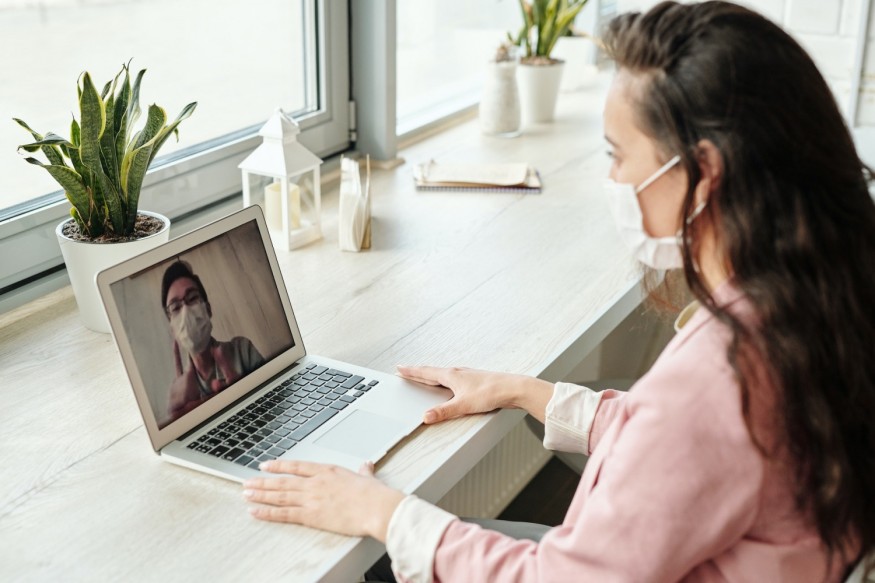
Post-COVID, a lot of things have changed. But, crucially, the rise of remote work and study has been a direct result of the COVID-19 pandemic. Of course, this phenomenon of remote activity - where digital methods of communication, dissemination, and collaboration have become heavily relied upon - is due in part to extended periods of forced COVID-19 pandemic quarantine, which were commonly referred to as 'lockdowns'.
During COVID-19 lockdown periods, the majority of offices and educational facilities were temporarily shut down, to avoid spreading the virus throughout the community. Naturally, however, professional employment and education still needed to continue despite these closures. As such, remote work and study became the norm. Importantly, they continue to be the norm in many places of work and education today.
Of course, this continuation of remote activities can in part be attributed to the overall convenience and reduced cost of these methods of operation. But - how are we adapting to this new norm? And perhaps more importantly, are these measures likely to stay in place in the future? Just keep reading to learn more.
Studying Post-COVID: Digital Study Methods

Studying via digital study methods became the way of the education world during the COVID-19 pandemic. Of course, for many international students in particular, enrolling to study at an online university during the COVID lockdowns was very isolating. Students essentially missed out on the social aspect of studying at university, as they were unable to attend on-campus events, activities, or classes.
Despite this, online education became the most effective method of study during the pandemic. It also resulted in the development of digital technologies that could facilitate online learning. For example, using the internet to share links to resources with students and colleagues become central to studying and teaching online. Further, video calls using programs such as Zoom and Microsoft Teams for meetings, as well as delivering tutorials and lectures, became essential during this time. In addition to this, students, lecturers and tutors alike were required to become more digitally savvy than ever before. Our reliance on online methods of communication increased dramatically, as did our ability to share information digitally. The creation of online university portals helped with this, as did utilise document-sharing programs such as Dropbox and Google Drive.
Professional Employment Post-COVID: Hybrid and Remote Working Models
During the pandemic, education was not the only activity that moved online. Professional employment was now also relegated to digital communication methods! This was extremely challenging for some people - particularly for extroverts who missed the human contact and face-to-face interaction of working in a communal office. Others, however, thrived. Indeed, many office workers were grateful for the opportunity to work from home. The arduously long work commute was a thing of the past. As was what many saw as wasted hours being unproductive, distracted and inefficient in the office - when you could just be at home, powering through the tasks at hand!
That being said, many workplaces are also seeing this increased efficiency - as well as the reduced overheads - as a huge benefit of remote working models. As such, even post-COVID, many offices are continuing to offer their employees the opportunity to work remotely. Some companies have even employed a 'hybrid' working model. Under this model, employees can engage in a mix of working from home, and based in the office. The best thing about this hybrid or 'blended' model, of course, is that it gives employees the flexibility to choose their preferred working method.
Into the Future: How COVID Has Permanently Changed The Way We Work and Study
Sadly, the benefits of hybrid and remote work and study methods are also compromised by some negative aspects. For many individuals, working and studying from home is a very lonely experience. This is particularly true if they are living alone.
This sense of loneliness and isolation was, admittedly, exacerbated during the lockdown periods. During this time, for many people, work/life balance simply did not exist - especially with the blurred lines of the home space having no physical boundaries from the workspace. With many students and employees being forced to work from a place that was usually their sanctuary and site of relaxation, fun and downtime, the lines between home and work became extremely fluid. As such, many workers even began to put in extra unpaid overtime, as the boundaries between the two elements continued to blur.
Of course, the difference now, post-COVID, is that if you are working or studying remotely, you still have the opportunity to go out in your downtime. As such, to make remote and hybrid work and study work for you, it is important to schedule social activities outside of these hours. These activities will make the time you spend working from home more bearable. They will also break up your week of work, which is essential to managing your stress levels and keeping a positive outlook on life.
It goes without saying - working and studying from home is the way of the future! Truth be told, it is simply more cost-effective to work and study remotely. For students, especially, the reduced overheads experienced by tertiary education facilities by delivering courses online means that it is simply cheaper to study via digital methods. Offices, too, are enjoying these cuts in costs. By no longer having to house workers in air-conditioned or heated offices, workplaces are saving money by having their employees work remotely.
That is not to say, however, that remote work and study don't have their drawbacks. Remote activities can be extremely isolating, especially if you are living alone. That is why it is vital for people who work and study remotely to cultivate an active social life. Post-COVID-19, after we lost extended periods to lockdown restrictions, it is more important than ever to foster human connection. So, if you're working or studying from home - make sure you're scheduling activities with your family, friends and loved ones, and taking measures to ensure you have a good work/life balance.
© 2026 ScienceTimes.com All rights reserved. Do not reproduce without permission. The window to the world of Science Times.










